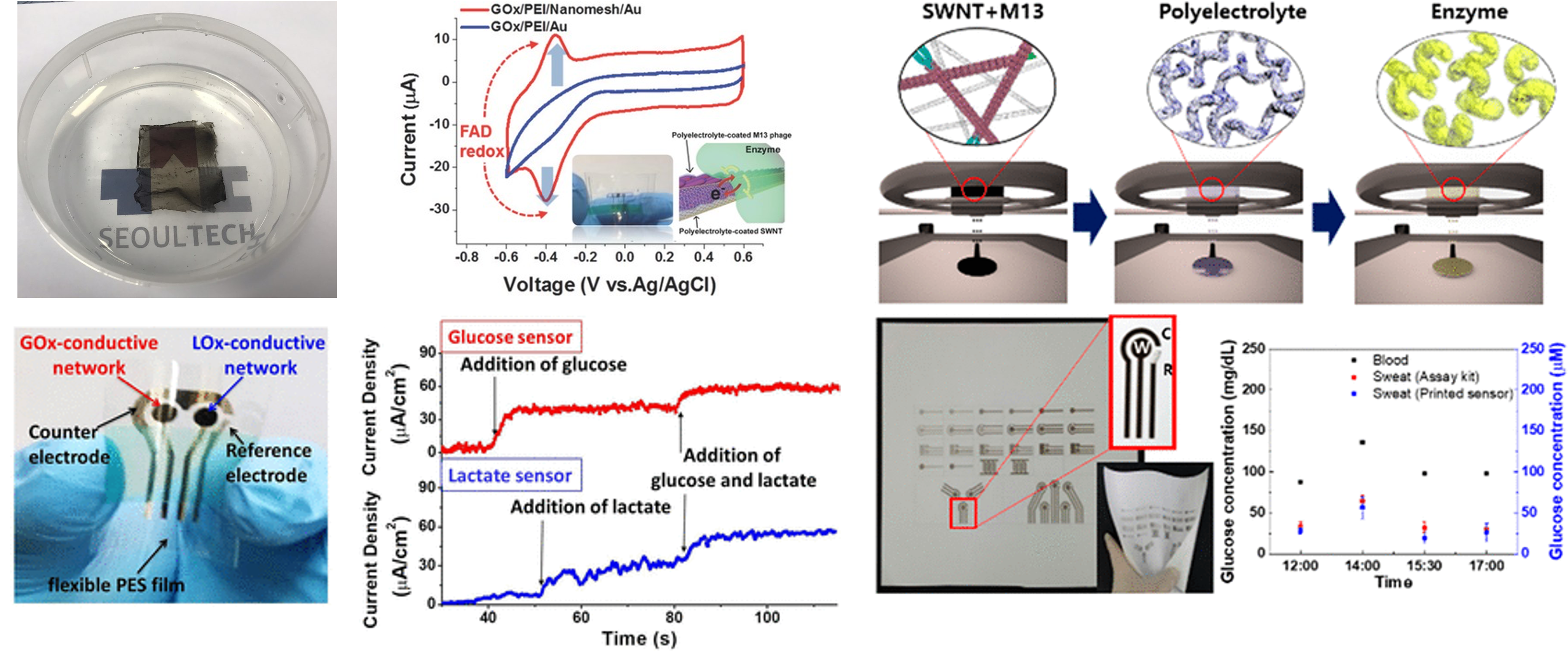

An electrochemical biosensor operates by directly converting a biological event into an electrical signal, enabling real-time and highly sensitive detection of biological processes. Efficient electron transfer (ET) between biological substances and the electrode surface is critical for improving the sensitivity, stability, and selectivity of electrochemical biosensors.
Our research focuses on the realization of effective ET between biological substances, Nano-Bio catalysts, and metal/semiconductor electrodes. Achieving efficient ET is essential for enhancing the overall performance and reproducibility of electrochemical biosensors. To address these challenges, the Smart Biosensor Lab focuses on assembly techniques using a variety of conductingand catalytic nanomaterials to improve electron transfer efficiency and biosensor response. Additionally, we employ advanced manufacturing techniques for nano-bio hybrid materials to fabricate high-performance electrochemical biosensors, including: (1) Screen-printing – for precise and scalable electrode patterning to ensure reproducibility and sensitivity, (2) Laser-engraving – for high-resolution structuring of electrode surfaces to enhance electron transfer efficiency, (3) 3D printing – for creating complex and customized sensor architectures tailored to specific sensing applications. By integrating these state-of-the-art fabrication methods, we aim to develop electrochemical biosensors with enhanced performance, reliability, and adaptability. Our approach supports the development of next-generation biosensing platforms for applications in healthcare, environmental monitoring, and industrial process control.
